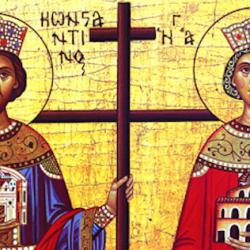Christians founded universities in medieval Europe. They were Christian institutions, but no one (to my knowledge) sat down to work out an explicitly Christian model of education before starting a university. Universities were Christians instinctively rather than self-consciously.
Dittos for many of the other Christian institutions that arose during the era of Christendom.
We no longer have that luxury. The cultural tides flow in a quite different direction, so establishing Christian institutions and patterns of life requires a deliberation that was not necessary centuries ago.
Self-consciousness has its pluses and minuses. On the minus side, it can produce a sort of anxiety, and an unhealthy attraction to novelty. When we can’t just ride a tradition anymore, when we have to think about what we’re doing every step of the way, we might be tempted to start everything all over again.
On the plus side, self-consciousness can produce a degree of consistency beyond that of earlier generations. We can’t take for granted that our cultural assumptions are orthodox.
Self-consciousness can produce a healthy kind of radicalism, a Christian practice and faith that reaches to the root.











